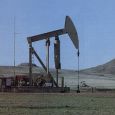The Gift of South Dakota
Subscriptions to South Dakota Magazine make great gifts!
Subscribe today — 1 year (6 issues) is just $29!
Economic and Political Effects of Keystone XL
Sep 26, 2011
This Thursday noon the Ramkota in Pierre will host a visit by the U.S. Department of State. Not all of it, of course, but enough of it to get yelled at. The occasion is one in a series of public hearings on the Keystone XL pipeline. This is one of the last steps, I gather, before the Obama Administration decides whether to let the project go ahead.
In my last column I focused on the national security issues involved in the Keystone decision. Those are not the issues that will weigh heaviest with the Administration. The economic and political implications of Keystone XL will likely determine the outcome, so I thought I would offer the Administration a little help.
One of the frequent arguments against KXL is that oil that flows through the pipeline will ultimately be sold abroad rather than consumed in the United States. This is a curious objection. The diesel and gasoline produced by Gulf Coast refineries will surely go wherever there is a market for it and markets are notoriously difficult to predict years in advance. If most or even all of it is shipped off to foreign markets, that would hardly be a bad thing. Importing a raw natural resource, adding value by refining it, and then selling it on the world market, that’s called manufacturing and export. It is exactly what any economy needs to do more of, especially if the gearshift looks to be slipping uncontrollably from neutral into reverse.
The Administration has just proposed another half a trillion dollars in stimulus spending. According to Ron Bailey, the science editor at Reason Magazine, the KXL pipeline is projected to inject $775 billion into the U.S. economy by 2035. That is almost as big as the first stimulus package. In every important way it is much bigger. It will be generated by a real increase in economic production rather than more borrowing against the future.
President Obama acknowledged that his administration had a lot of trouble finding “shovel ready” projects to spend the first stimulus on. KXL will create 10,000 jobs right off the bat and 34,000 by 2014. Altogether Keystone is projected to create 600,000 jobs. To be sure, some of these will be temporary; however, producing as many jobs as quickly as possible is precisely what the Administration says it wants to do. In June the Canadian province of Alberta, from whence the oil will come, produced as many jobs as the entire United States.
Once the pipeline is in operation, it will provide much needed relief to governments in the form of state and local taxes. According to the State Department’s Final Environmental Impact Statement, the pipeline project would add an additional $15.4 million to the annual property tax revenues of nine South Dakota counties. Meade, Lyman, and Perkins counties would see annual revenue increases ranging from 38 to 48%. Tripp County would see an increase of 150%. Haakon and Jones Counties would enjoy three times the annual property tax revenues that they brought in over 2006. The grand prize winner will be Harding County. Its revenues would nearly quadruple, from $876,254 to $3,346,244! Nor is Pierre left out. The state will rake in about eight and a half million from the project development.
This is the kind of economic power that makes Washington’s efforts at stimulus look like sad jokes. I find it hard to believe that President Obama can say no. He will disappoint environmentalists and the anti-corporate left, which may matter come November of next year. On the other hand, he will delight a lot of union workers and organizers. There is no constituency to which he has been more loyal. Finally, if he does cancel the project, he hands his Republican opponent a very rich issue.
I don’t know what the Administration will do. I am sure about what it should do. Building Keystone XL is in the national interest both in terms of security and prosperity. It is also a very good thing for a cash-strapped Rushmore State.
Dr. Ken Blanchard is a professor of Political Science at Northern State University and writes for the Aberdeen American News and the blog South Dakota Politics.










Comments
Bernie: Your response seems to me to be right on target. Make sure that TransCanada is responsible.